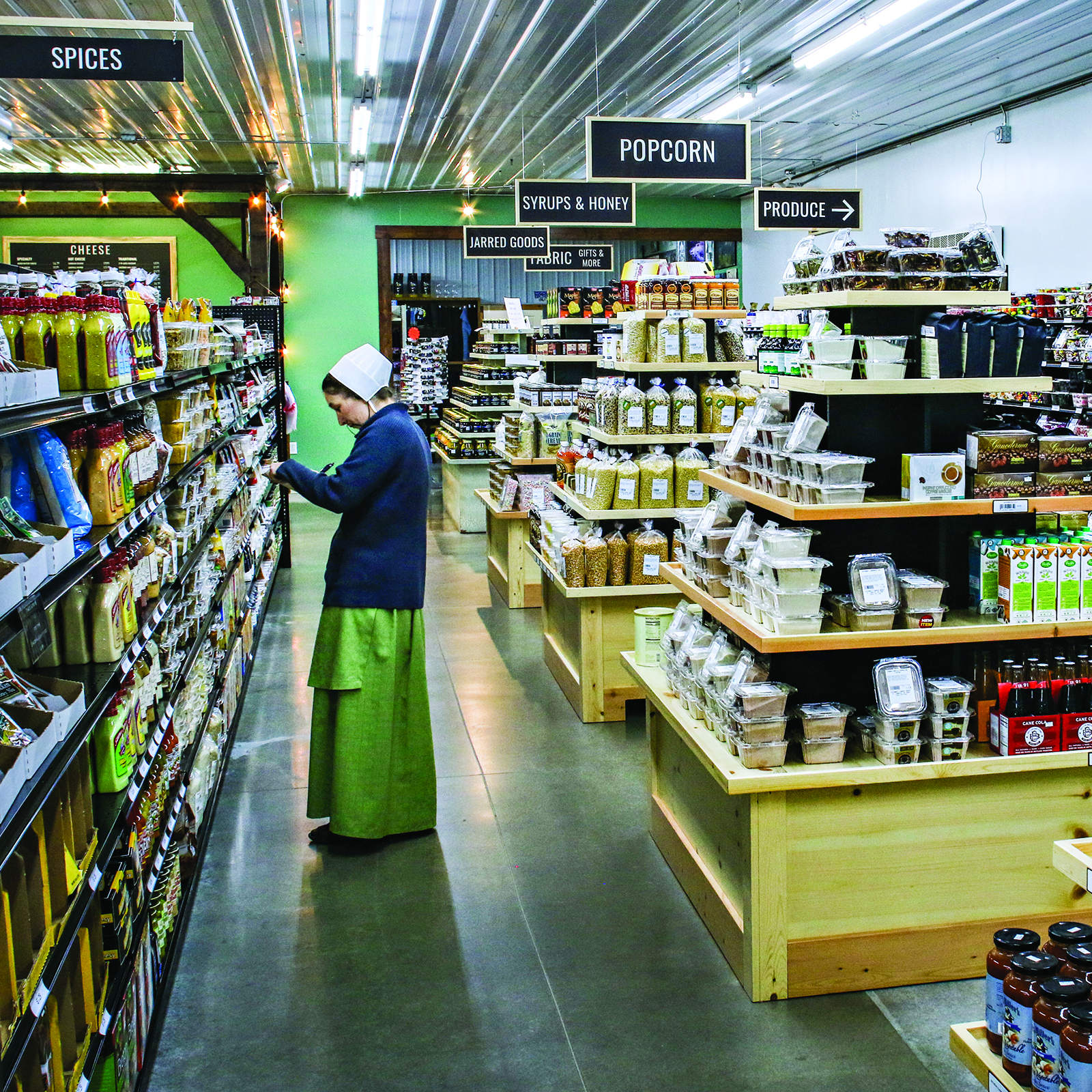
Swiss cheese can be an acquired taste, and Delbert Bontrager has always prided himself on helping customers acquire it.
“Swiss cheese was always my thing,” said Bontrager, the founder and longtime owner of the Mission General Store, now Stutzman’s Country Market, in St. Ignatius. “We met a lot of people who say they don’t like Swiss cheese and we changed their minds. The key is Swiss cheese from Ohio. I think everybody in the West should try it.”
Bontrager had been running the store for almost a decade before he expanded to include the deli and began selling high-quality meats and cheeses. Now, there are more than 40 different varieties, running the gamut from traditional Swiss to a creamy blueberry white cheddar to a full range of heat-infused bricks: regular pepperjack, jalapeno Munster, mango fire cheddar, smoked horseradish and a Carolina Reaper cheddar, made with one of the hottest known peppers.
“I’m a cheese critic,” Bontrager said. “I only sell from very reputable sources. I’ve sat with lots of owners of these companies where they have tasting groups, and I know it comes across as a better cheese.”
His take on cheese reflects the greater ethos of the shop, which prides itself on quality.
“My goal was always simply catering and listening to the customers,” he said. “And then finding unique products that people might want to drive to a country store for.”
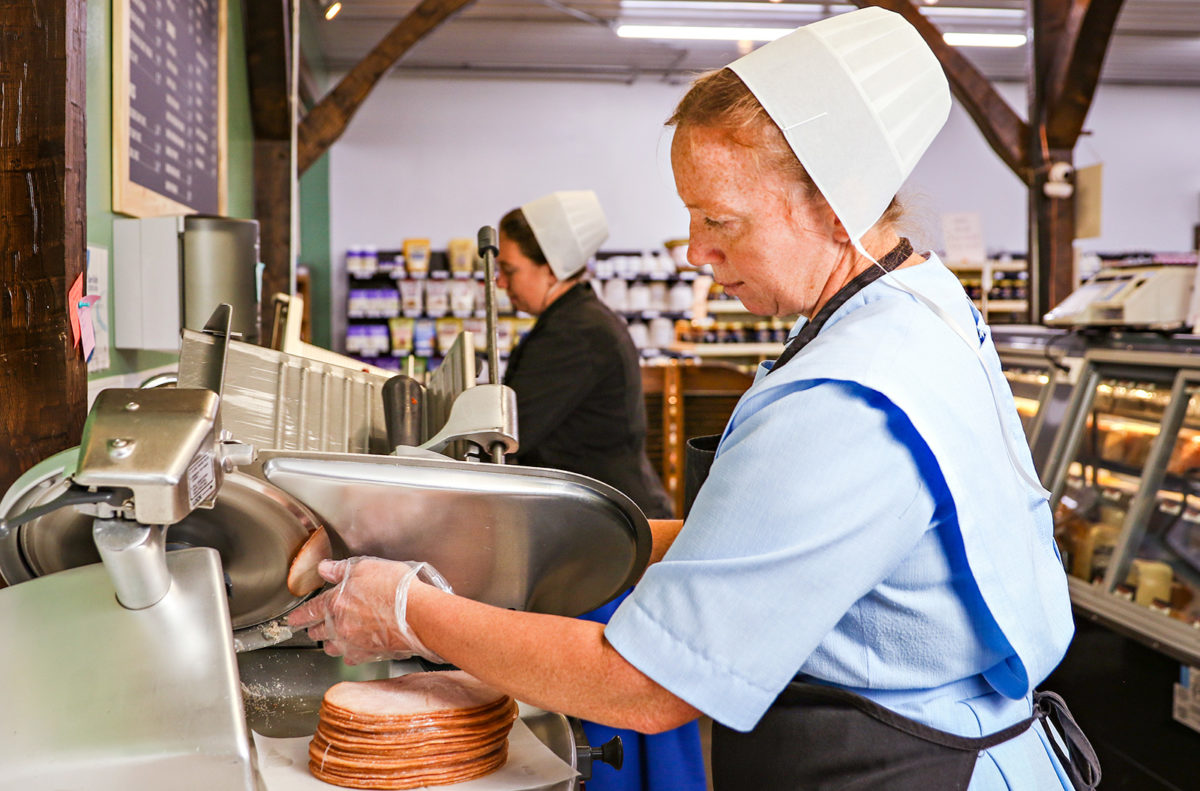
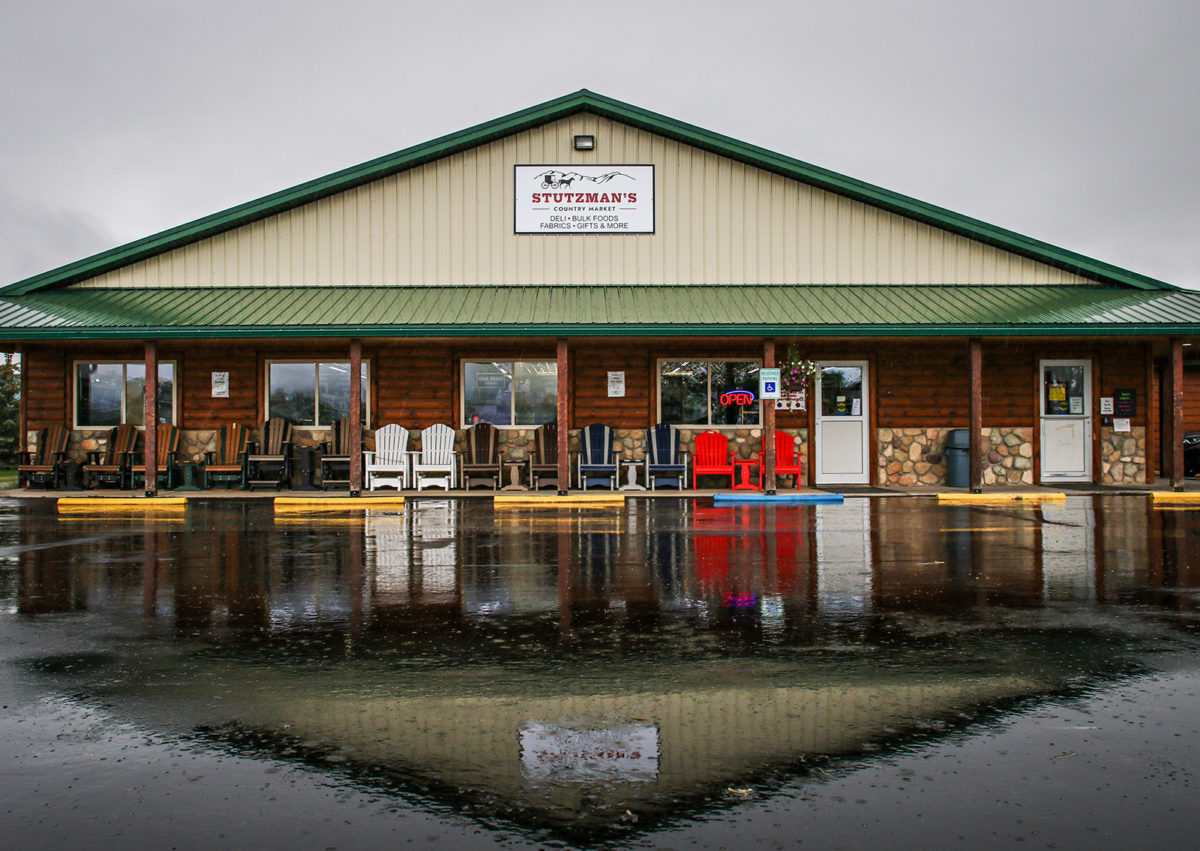
The Amish community in St. Ignatius is similar to those scattered across the state: small and close knit. Roughly 30 families — about 160 people, counting children — pursue a devout Christian lifestyle in the shadow of the Mission Mountains.
“The culture comes from years ago, being constantly driven out by persecution,” Bontrager said. “We’re taught strong work ethics, that you work to survive. We teach the concept of helping people out, all Christian, biblical-based principles.”
All members of the community are raised bilingually, with Pennsylvania Dutch as the main language. Kids are fluent by the age of 7, and mandatory schooling stops after eighth grade.
According to Bontrager, the community is unique for existing on the Flathead Indian Reservation. St. Ignatius mixes the Amish with Native Americans and non-natives, and nowhere is that mix more on display than at the market.
“We made a friendly country store,” Bontrager said. “I see people talking in there who don’t talk to each other when they meet in town. When you see your neighbor in the market, you actually talk to your neighbor.”
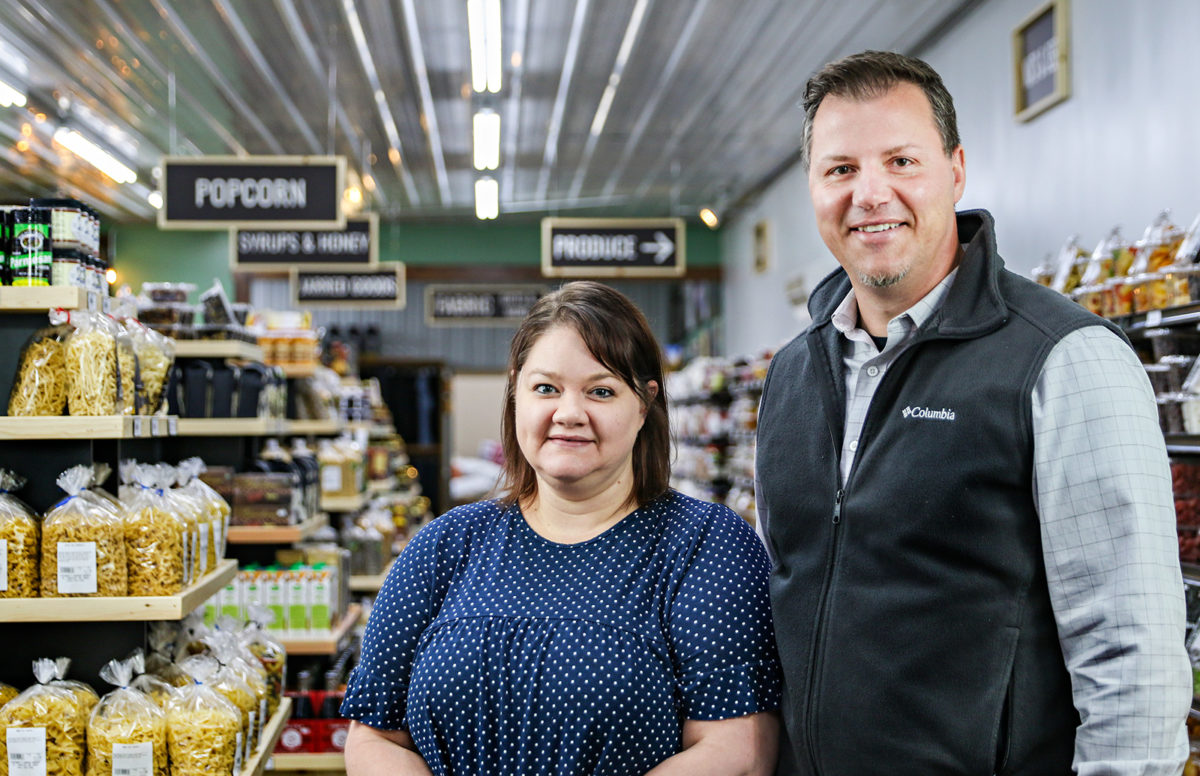
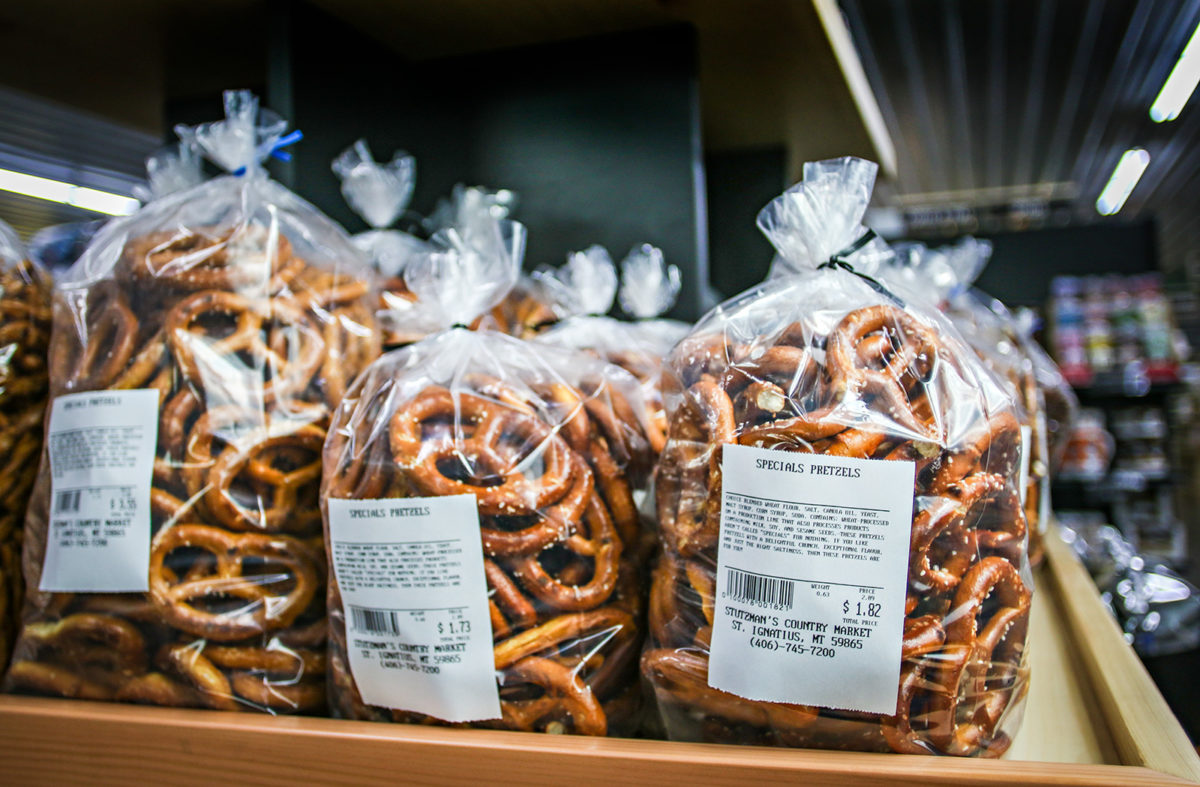
Bontrager grew up in the Amish community of Topeka, Indiana, and moved west to the Eureka-Rexford area, where he worked for 14 years before meeting his wife, Ruth.
Ruth was a dry goods and fabric store manager for several years, and the couple decided that they could run a full market, which are often staples in Amish communities across the nation. They moved to St. Ignatius and gave it a shot, starting off as a closeout, discount market.
Cans of dressing normally sold for $3 are 99 cents. Grains and nuts are purchased by the market in bulk and repackaged for cheap sales. Food that is close to expiration or slightly out of date covers the shelves.
“We knew we would only sell products we would eat ourselves,” Bontrager said about the out-of-date foods. “The big attraction was the pricing. The market is a community staple, but it’s also a place people come to bargain hunt.”
Between the closeout shelves and deli, sections of the market sell fabric, furniture and ice cream cones. The whole building has an old-fashioned feel, as if you’ve stepped back into the ’60s — at least the 1960s, although you may think it’s the 1860s after a glance at the horses and buggies parked outside.
“Over the years we learned what would work here out West versus back East in the bigger Amish communities,” he said. “It’s just basically an eighth-grade education, a lot of experience and lots of questions from other people. We had a very successful run over those 17 years.”
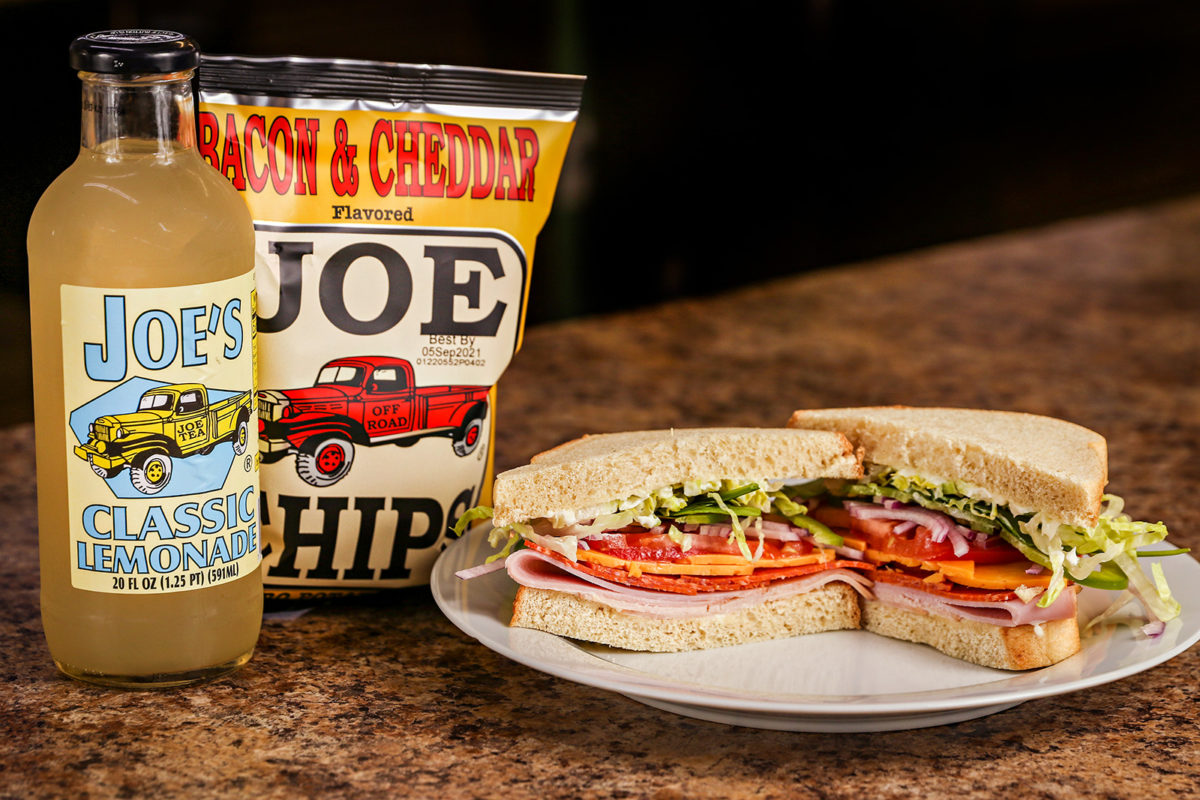

Those 17 years recently came to a close.
Bontrager was in an accident a few years ago that left him with bad head injuries. Running a business was stressful after he got out of a month-long stay in the hospital.
“I just didn’t want the pressure and the stress anymore,” he said. “I needed to get out, and God saw a way out for me.”
The way out came in the form of Chriss Stutzman, the owner of Stutzman’s Amish Furniture in Polson.
“When Chriss came along, I knew he had a good business in Polson and understood the Amish community,” Bontrager said. “With that, just talking to him, we got together with an agreement.”
“We’ve always wanted to add the bulk food, the meats and cheese and deli to the furniture store; however, we didn’t have any room,” Stutzman said. “I’ve always respected Delbert and saw the chance to pursue this and make it our own.”
Similar to Bontrager, Stutzman grew up in a Midwest Amish community, in Ohio. He left the Amish way of life at 18 and lives with electricity and a car, although all of his 14 siblings back east still drive their buggies.
Stutzman and his wife moved to Montana as missionaries with Youth With a Mission (YWAM), and when they transitioned out of the program and into the business world, they knew they wanted to run a furniture store or a grocery store.
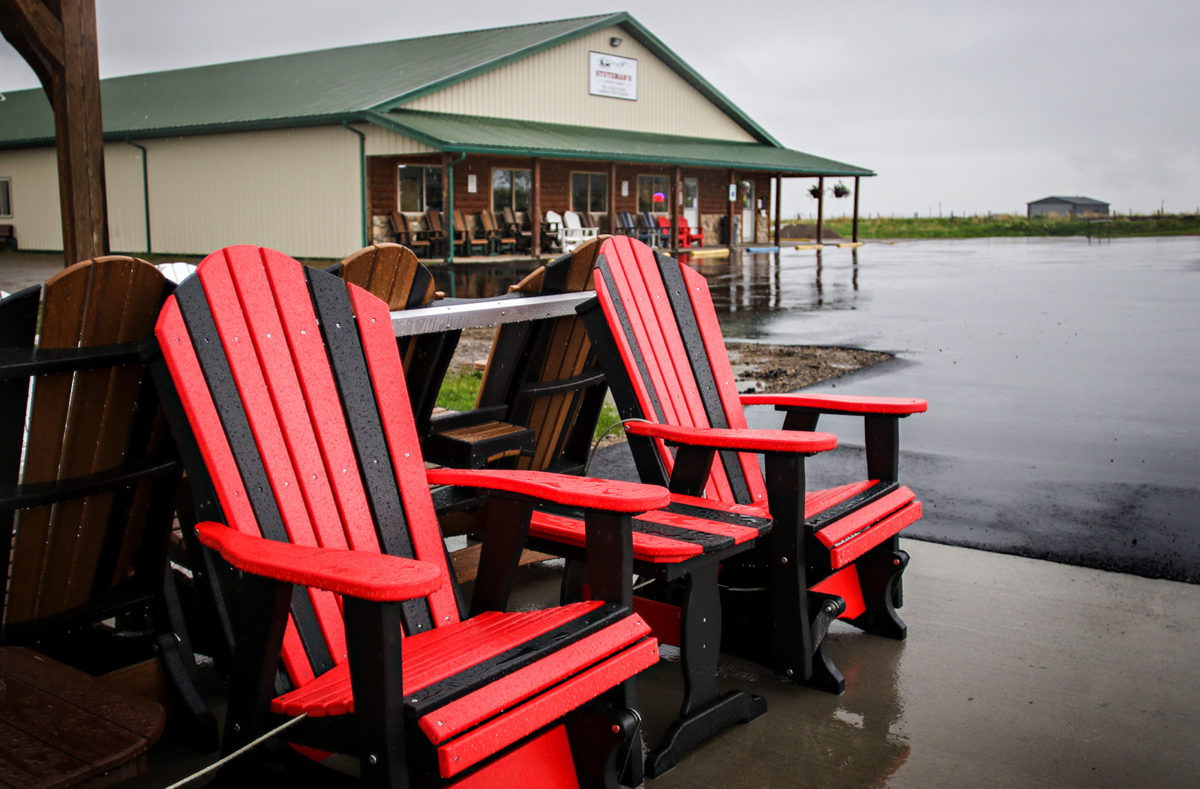
“YWAM helped me respect the culture I grew up in a little more,” Stutzman said. “Everybody’s culture is unique and I wanted to get back to continuing to share our roots, the values and morals we grew up with, and there happen to be several Amish communities here.”
The furniture store started first, with Stutzman realizing that the No. 1 hardwood furniture crafters in the United States were those he grew up with.
“To us, it was just what we had,” he said. “It was everyday life and you didn’t think about it until you got out and realized what other kind of furniture it is.”
Stutzman can talk at length about the reasons that Amish-made furniture is superior quality, much of it stemming from tradition and the small, family-owned nature of many of the businesses he contracts with, all reminiscent of his upbringing.
Moving into the grocery-store business was a natural transition that he has been thinking about since leaving the Midwest.
“Again, it goes back to the family atmosphere, the home-style feel and the products your grandma would have,” he said. “That’s what I wanted the market to be.”
Taking over Bontrager’s market has been smooth, with only a few short closures for remodeling and a newly paved parking lot that still has a hitching post for tying up horses and buggies. A grand reopening party was held on June 5.
Shoppers who have been to the market before will notice the rearranged aisles first. The store has a more open feel, with checkout counters relocated along the front windows and new shelving that emphasizes the home-style and bulk foods prominently displayed.
Other than that, it has the same old-school feel of the country market that has been a community staple. Employees routinely slip back and forth between English and their native Pennsylvania Dutch. The back row of the market features signs and posters bearing Bible verses for sale, a nod to the community’s foundation.
“I love the remodel, and I feel like everything has its own place now,” eight-year employee Clara Coblentz said. “And you can just walk through the back room, read the Bible verses and recalibrate whenever you need to.”
The market has about a dozen employees, mostly from the Amish community. To keep the market from being a disruptive presence in the local culture, Stutzman has strict limits on how much technology is utilized, even as he has updated the checkout systems and is himself reachable by texting. Those restrictions include how many websites can be accessed (five, all food-ordering sites), and he has worked to enhance the already community-centric atmosphere.
“How many people think, ‘I’m going to go to the grocery store to unwind?’” he asked. “That’s how I describe the place — it’s a social place; there’s laughter here. People will come into the store, not even to buy anything, just because they love it.”


“It was sad to pass the store on. I love the people who came into the store; I loved everyone,” Bontrager said. “The customers were my friends. Yes, they made a living for me, but beyond that I enjoyed them.”
Delbert and Ruth are in the process of moving to the Bitterroot Valley, where another community of Amish families has recently gathered. They split their time between the Bitterroot and Mission valleys as they build the new barn and sleeping quarters.
Their daughter, Mary Rose, who has been the deli manager for the last four years will be moving with them, making it the first time since she was 3 years old that she won’t spend most days of the week in the market.
Bontrager is happy to be leaving the market in good hands, and believes the Stuzmans will continue to improve it to best serve the community.
“It was almost too simple,” Bontrager said. “But I think God works in those ways.”